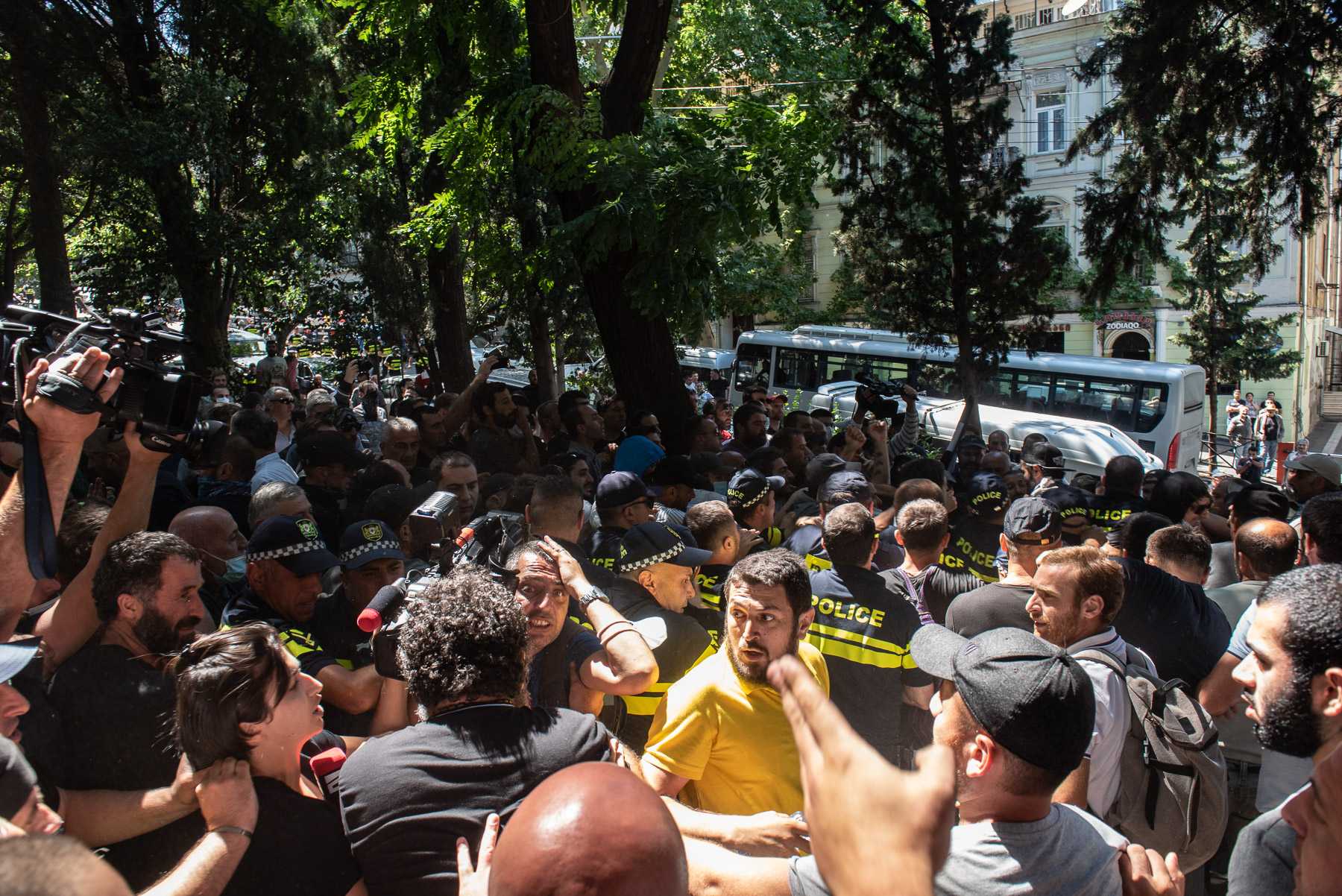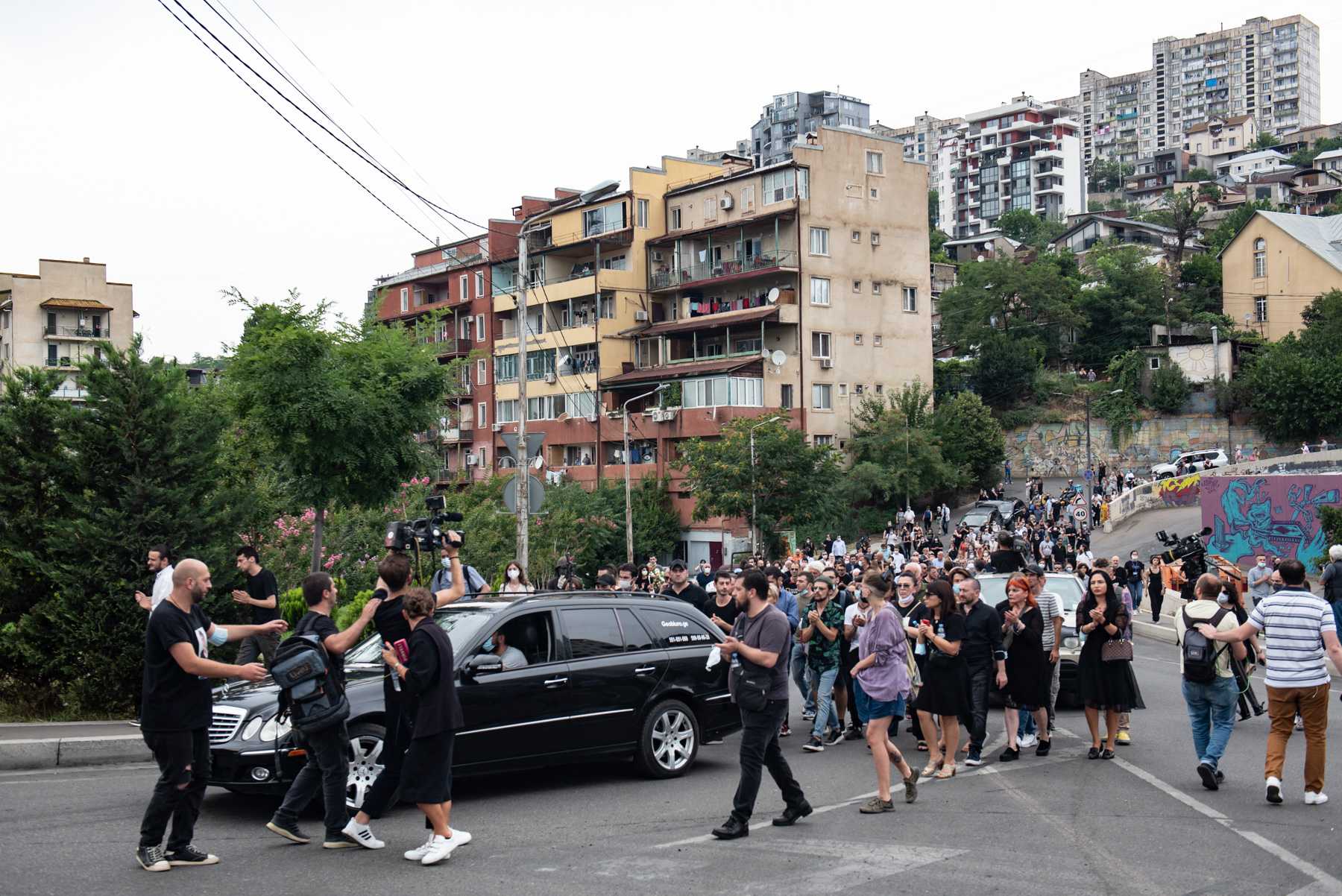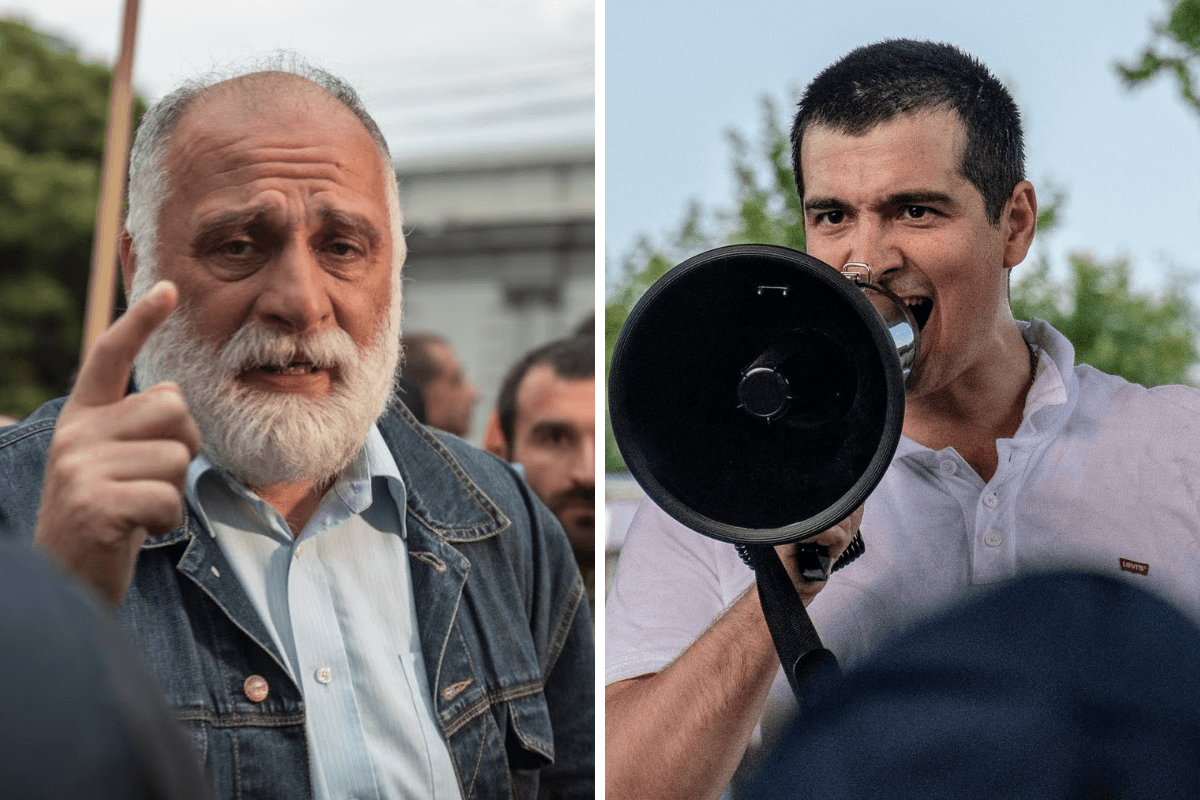
Georgian authorities have questioned several homophobic campaigners suspected of organising violence against journalists, queer activists, and their supporters on 5 July.
On Friday, the Interior Ministry summoned key people from at least four far-right and ultraconservative groups.
These included Zurab Makharadze, one of the leaders of the far-right Alt Info, Guram Palavandishvili, chair of the ultra-conservative Society for Protection of Children’s Rights, and Levan Chachua, who leads the Georgian Idea party.
Both Zurab Makharadze and Guram Palavandishvili were instrumental, along with the Georgian Orthodox Church, in mobilising crowds against the March for Dignity planned by queer rights group Tbilisi Pride on 5 July in downtown Tbilisi.
[Read more on OC Media: Homophobic mob celebrates on Tbilisi streets after Pride march cancelled]
Alt Info also claimed that four other members were summoned for questioning and their flats searched.
One of those was Konstantine Morgoshia, one of the founders of Alt Info, who on 5 July called on ‘500-600’ people to move to the offices of liberal group Shame Movement, which was later ransacked. During the attack, TV Pirveli camera operator Aleksandre Lashkarava was beaten, before passing away at home six days later.
A day before Morgoshia was questioned, Georgian online outlet Publika published a chronological compilation of footage, including those retrieved from publicly live-streamed videos by far-right activists. The film showed the police officers not resisting and in some cases even appearing to cooperate with Alt Info as they raided the Shame Movement offices.
While forcing the organisers to cancel the Pride event due to the lack of security, violent groups also targeted journalists covering their protests on Rustaveli Avenue and other locations, resulting in 53 injured journalists and causing a wave of local and international condemnation.
Lashkarava’s death on 11 July caused further public outrage and calls for Prime Minister Irakli Gharibashvili’s resignation.
Law enforcement agencies have so far indicted 24 individuals over the attacks on journalists on 5 July, including several suspected of attacking Lashkarava.
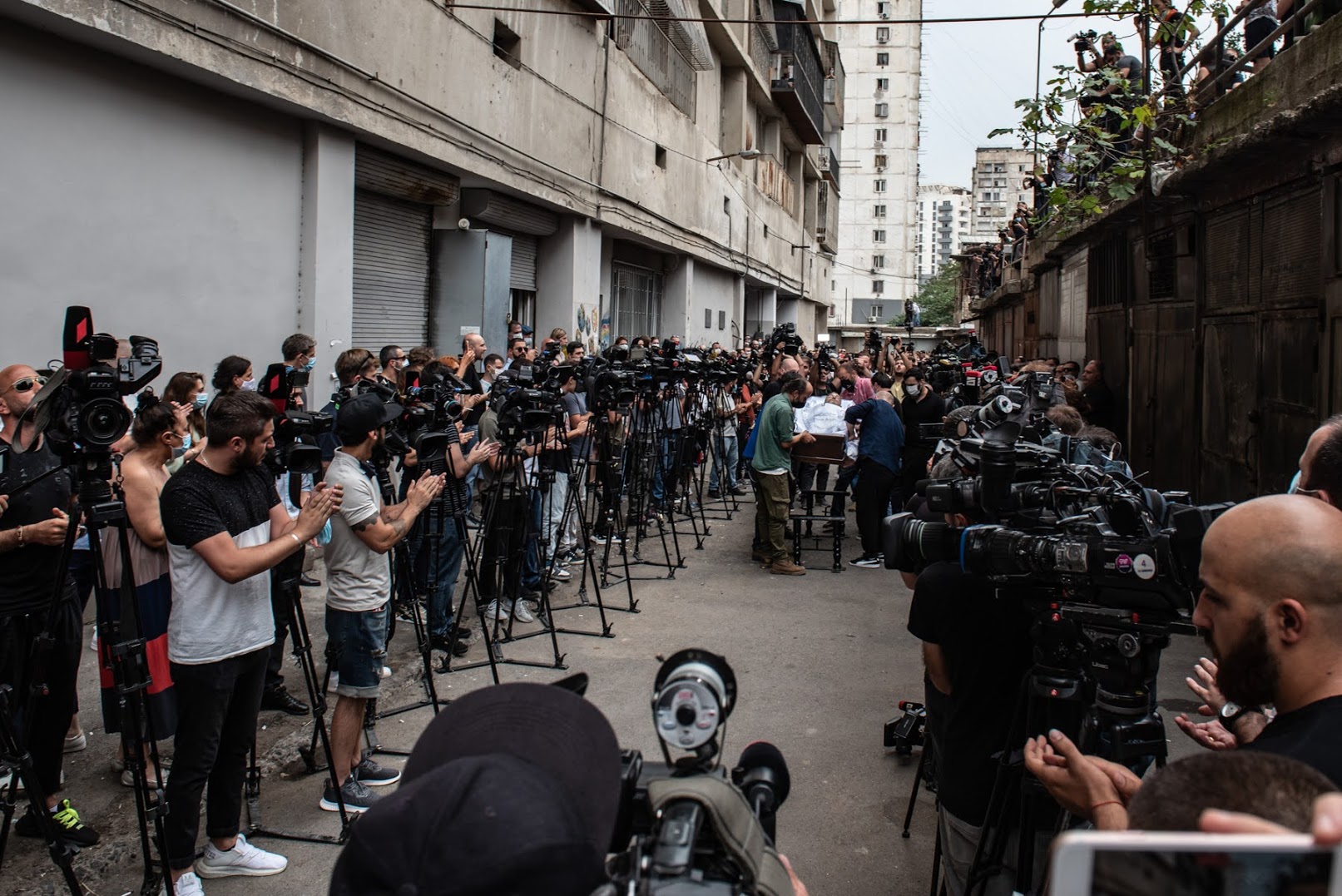
Critics, including several opposition groups, maintain that Irakli Gharibashvili should be held responsible not only for his refusal to ensure the safety of the march but also for inciting violence by chastising Tbilisi Pride at the moment the mobs started to riot in Tbilisi and thereafter.
[Read from OC Media: Editorial | A state-sanctioned attack on Georgia’s free press]
The day before the arrests, the embassies of 24 EU member states in Tbilisi and the EU Delegation to Georgia called on Georgian Interior Minister Vakhtang Gomelauri and the Georgian government to ‘effectively and quickly’ investigate and ‘duly prosecute to the full extent of the law’ all the perpetrators of 5 July violence.
The Interior Ministry have yet to comment on the ongoing probes.
Alt Info
Alt Info and Guram Palavandishvili’s group have continued to be active since the 5 July riots. The following day, both organised a counter-protest against a larger crowd gathered outside Parliament to condemn the previous day’s events.
The 6 July protest, which was joined by Tbilisi Pride, as well as political parties European Georgia, Girchi — More Freedom, and Lelo, condemned the violence and the tearing down of the EU flag in front of the Parliament.
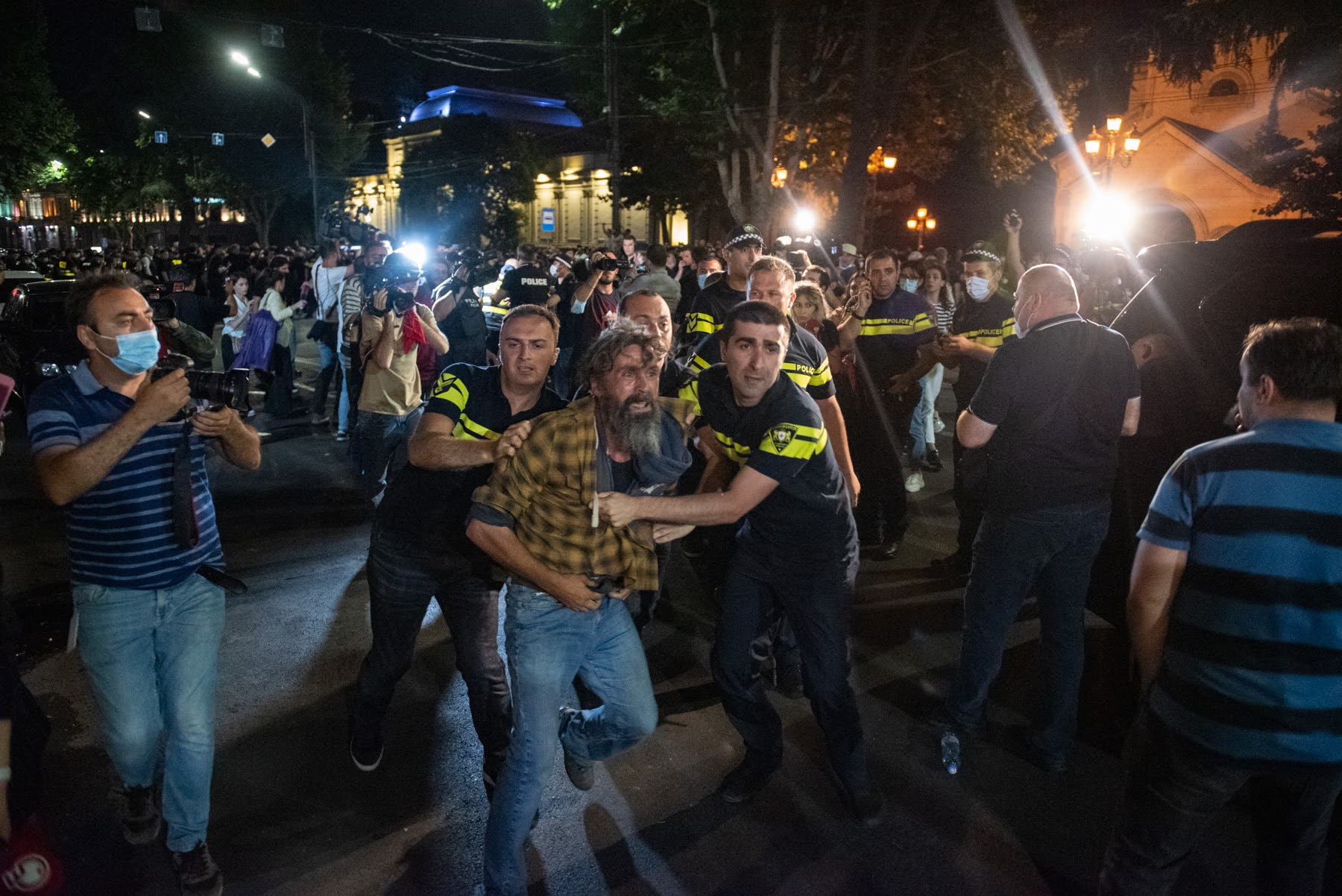
Alt Info is one of the latest formations on the Georgian far-right scene. The group is led by businessman Levan Vasadze, who recently launched his own political party, ERI, with plans to integrate the core of the Alt Info group into it and participate in the October local elections.
Despite losing most of their original accounts on Facebook after violating the platform’s community standards, Alt Info have been granted a broadcasting license in Georgia and launched their namesake TV channel on cable TV earlier this year.
While Vasadze was first to announce anti-Pride protests in June, he was later absent in Tbilisi citing his deteriorated health and recovery — first in Istanbul and later in Moscow.




